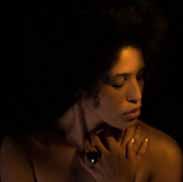Law of Conservation of Matter and Balancing Equations – Flashcards
Unlock all answers in this set
Unlock answersquestion
| What is the Law of Conservation of matter? |
answer
| During an ordinary chemical change, there is no detectable increase or decrease in the quantity of matter. |
question
| What is the left side of a chemical equation called? |
answer
| Reactant |
question
| What is the left side of a chemical equation called? |
answer
| Product |
question
| How is the arrow in a chemical equation read? |
answer
| "Yields" |
question
| What are the three types of chemical reactions? |
answer
| synthesis, decomposition, replacement |
question
| If the total mass of the products is 10g, what was the total mass of the reactants? |
answer
| 10g |
question
| True or False: A coefficient is a number placed in front of a chemical formula in an equation. |
answer
| True |
question
| True or False: In an open system matter can enter from or escape to the surroundings. |
answer
| True |
question
| What is a closed system? |
answer
| In a closed system, matter is not allowed to enter or leave. |
question
| What is the smallest possible number of products in a decomposition reaction? |
answer
| two |
question
| True or False: When one element replaces another in a compound, or when two elements in different compounds trade places, the reaction is classified as synthesis. |
answer
| False |
question
| The substance produced in a chemical reaction is called the ________. |
answer
| Product |
question
| What is the first step in balancing any equation? |
answer
| Write the equation |
question
| True or False: A pear decaying in a glass dome is a closed system. |
answer
| True |
question
| True or False: Matter is not conserved in chemical reactions. |
answer
| False |
question
| True or False: When they are two or more reactants, they are separated by minus signs. |
answer
| False |
question
| True or False: The number of reactants and products are always the same. |
answer
| False |
question
| True or False: The formula of a compound identifies the elements in the compound and the ratios in which their atoms are present. |
answer
| True |
question
| What is the basic structure of a chemical equation? |
answer
| Reactant + Reactant ---> Product + Product |
question
| True or False:The subscript is at the end of an equation. |
answer
| True |
question
| What is the formula that states that the ratio of carbon to oxygen is 1 to 2? |
answer
| CO2 |



